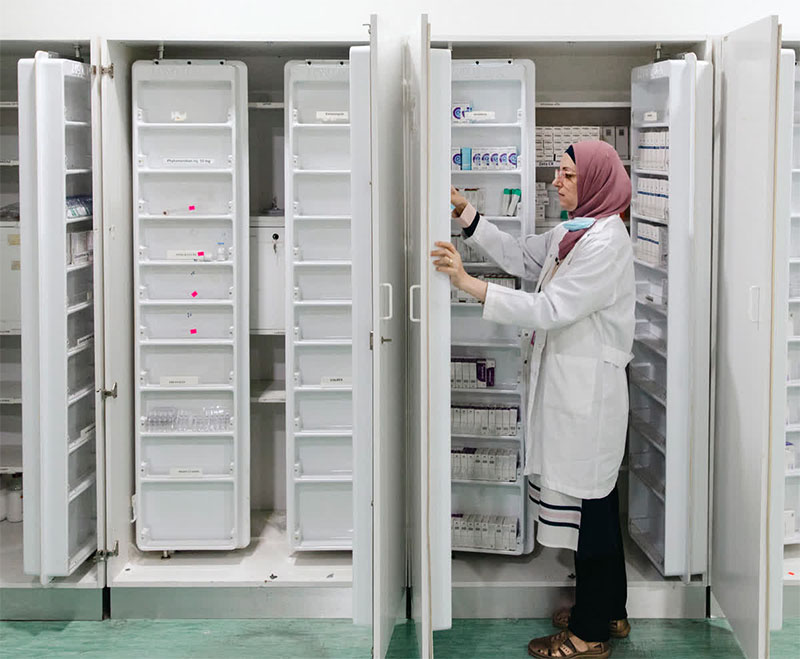
Photo Credit: File Photo
Amnesty International on 9th February addressed Lebanon's drug shortages and healthcare crisis. More than a year after the Lebanese government removed subsidies on most medications, short-sighted policies and a lack of adequate social safety nets have left people unable to access or afford vital and life-saving medication.. The government has also failed to fulfill its commitments to support Primary Health Care Centres (PHCCs), which provide free and low-cost medication and have been facing high demand.
In a statement, Amnesty International explains how the ongoing economic crisis in Lebanon, coupled with an underwhelming government response, has placed enormous strains on an already fragile health sector. With the Lebanese lira rapidly losing its value and the depletion of the Central Bank’s foreign currency reserves, the Ministry of Public Health (MoPH) announced on 9 November 2021 the lifting of foreign exchange subsidies on all medications except those treating cancer and some other chronic diseases with immediate effect. As a result of the lifting of subsidies, the prices of most medicines rose exponentially.
Citizens in remote areas or further away from Beirut are suffering during the crisis, due to a lack of resources from the central government.
A Ministry of Public Health official told Amnesty International that the number of patients accessing health services, including medication, at PHCCs had increased by 62% since 2020.
According to Caretaker Minister of Public Health Firas Abiad, the government reduced its total spending on the health sector by 40% between 2018 and 2022 without increasing the PHCC’s share to more than 3% of the health budget, meaning that funding for PHCCs has reduced in this period. In addition to the decrease in the amount of money allocated to the provision of affordable healthcare and medication, the currency devaluation meant that the money itself lost 95% of its value.
Severe shortages of life-saving medicine
Cancer medications are one of the few categories of medicine that remain subsidized by the government. But across Lebanon, there are severe shortages of cancer medicines.
The government’s attempts to combat this issue and hold those responsible to account are inadequate.
Lewis Musonye





















